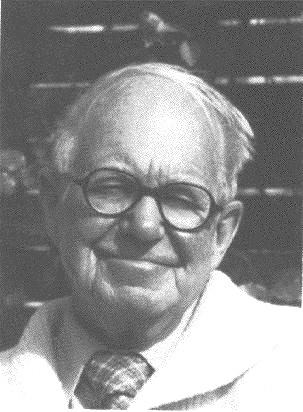| Profile | Major Works | Resources |
George L.S. Shackle, 1903-1992

Although born in Cambridge, George Lennox Sharman Shackle obtained his Ph.D. from the L.S.E. in 1937, at the height of the early Robbins years. Shackle was a professor of economics at the University of Liverpool for most of his life.
A pioneering Post Keynesian, G.L.S. Shackle was among the first economists to insist on the importance of "real" uncertainty and time for economic theory. This was an outcome of his early work in investment and business cycle theory (for which see his now famous 1938 dissertation, Expectations, Investment and Income).
His work on uncertainty focused on moving away from probability- based resultions for uncertain situations and moving towards more complex modes of behavior which include "potential surprise", "focus-outcome" of competing choices, much of it linked to uncertainty-induced demand failures. Much of his theory was set out in the breakthrough work, Expectation in Economics (1949).
His reflections on the concept of "time" in economics and how that is related to uncertainty and decision-making was a life-long concern of Shackle. His work Time in Economics (1958), Decision, Order and Time in Human Affairs (1961) and A Scheme of Economic Theory (1965) provide exemplary results of this.
Two of his works on doctrinal economic history have become classics: his Years of High Theory detailing the economic debates surrounding the Keynesian Revolution in Britain are invaluable as is his Epistemtics and Economics, an incisive critical evaluation of various economic theories.
|
Major works of G.L.S. Shackle
|
|
HET
|
|
Resources on G.L.S. Shackle
|
All rights reserved, Gonçalo L. Fonseca
